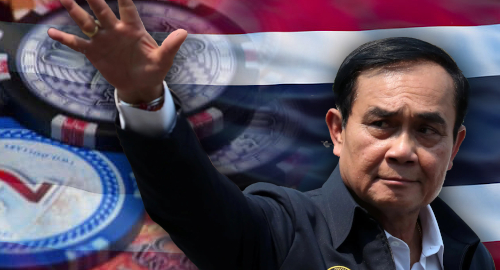
Thailand’s government is finally considering relaxing its longstanding ban on casino gambling as a means of limiting further spread of the COVID-19 coronavirus.
Last week, Thailand’s Prime Minister Prayut Chan-o-cha authorized the formation of two committees: one to examine the role of human traffickers smuggling migrants into the country, the other to probe how local authorities are investigating cases of illegal gambling.
Both committees are intended to find ways of limiting further spread of COVID-19, the rates of which have doubled in the past month. Meanwhile, pandemic fears and quarantine requirements have decimated Thailand’s international tourism industry, with predictable effects on the government’s tax revenue.
Police in Nonthaburi, Thailand’s second-largest city, raided an illegal gambling den last week, while police in the resort town of Pattaya raided another illegal gambling hub in a condominium complex. The gambling committee has been asked to probe whether police turned a blind eye to these and other gambling dens that operate with seeming impunity across the county.
PM Prayut (pictured) stated Friday that while his personal view of gambling isn’t favorable, it was time to discuss whether to legalize gambling in Thailand, saying all the enforcement in the world “will not be able to rid Thailand of illegal gambling dens.” Prayut’s view is shared by some opposition party leaders, who view legal casinos as a means of boosting the government’s depleted treasury.
Thailand currently permits only a state-run lottery of limited appeal to local residents, many of whom routinely crossed over into neighboring Cambodia to gamble at border town gambling venues. But those border crossings have been closed due to COVID-19, creating new opportunities for underground gambling operators within Thailand.
PM Prayut has called for a public discussion of legalizing gambling and anti-gambling groups have already weighed in with their predictable take on the matter. More open-minded groups are discussing the possible parameters of legal gambling, with suggestions that it be limited to integrated resorts in tourist areas rather than allowing a plethora of small-scale venues in local communities.